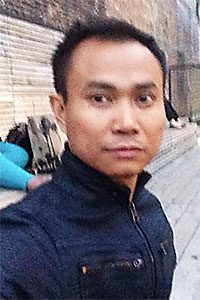
As Buddhist Lent approaches, the puritan ethic of alcohol abstinence is being brushed-up and preached again. As if the many insensible laws curbing alcohol consumption in the nanny state of Thailand are not enough, the Thai Health Promotion Foundation (ThaiHealth) is spending tax money on its annual campaign pursuing unrealistic goals with a laughable strategy.
Last week, ThaiHealth announced its "vigorous campaign" to promote alcohol abstinence during three-month Buddhist Lent from July 9 onwards. It is another repeated attempt that fails to address the key problems involved: alcohol dependency, underage drinkers and drink-driving.
Like the laws that ban the sale of alcohol on certain times of the day and year, ThaiHealth works towards its goal of promoting temporary abstinence.

Surasak Glahan is deputy editorial pages editor, Bangkok Post.
Bundit Sornpaisarn, ThaiHealth's deputy director, said this year's anti-drinking campaign involves creating alcohol-free areas in at least one district of each province and targets alcoholics, in addition to normal drinkers. It will also recruit at least 500 people in each provincial district nationwide to spearhead the anti-drinking campaign.
OK, let's have a drink to get a crystal clear thought on this campaign.
It is obvious the three-month effort will mainly succeed in persuading those who drink socially and have a strong tendency to cut back on their drinking. An adviser to the Mental Health Department admitted at the campaign launch that this is the main target of this repeated campaign. They are not alcoholics.
But this year the campaign wants to target alcoholics (for the first time?) with a strategy that only makes me want to pour another glass of a Thai craft beer, made overseas and sold locally with import tax added, to dictate how our money ("sin tax" from the sale of alcohol) is spent.
How could they wipe out alcohol drinking from one district in each province? Will the 500 people recruited be able to convince people to refrain from drinking for three months?
Don't get me wrong. I admire those who can cut back on their drinking or who want to participate in this campaign. But those who want to drink of their own free will should be left alone. It's a matter of choice.
Many drinkers are not alcoholics, are responsible citizens and are mature enough to think and decide for themselves how they should manage their consumption. Any advice on how to cut back on one's drinking on a basis of health or economy reason is appreciated. Any ban on what time of day or year they should not drink is not.
Our laws are absurd. Under the 2008 Alcohol Control Act, liquor sales are prohibited from 2pm-5pm and between midnight and 11am.
Alcohol sales are also banned on election days and religious days. A new order issued in January 2015 by this government additionally bans the sale of alcohol in entertainment venues to only five hours, from 7pm to midnight.
The lawmakers must have a false belief that people cannot make sound decisions on their alcohol intake and need the state's help to do this. They also forgot people may work different hours to each other and may wish to entertain themselves outside those prescribed hours of alcohol sale.
Do these laws and this ThaiHealth campaign address the root cause of excessive drinking, alcoholism and alcohol abuse? I believe they don't.
Those depending heavily on liquor can stock their supply in advance and carry on drinking excessively. At the same time, people who drink occasionally, socially or habitually find it frustrating just to live their normal lives.
Alcohol consumption has long been a part of Thai social life. Over time, some people may cross over into excessive drinking or alcohol dependency, and they do need help on how to drink moderately.
Health campaigners should rather target problem drinking, offer counselling to alcohol abusers and run more collective campaigns that provide tips for people to cut back on their drinking.
The forced abstinence approach does not work.
Governments should try to understand social patterns that lead to alcohol abuse and offer help, not control.
With the current weak economy along with the government's restrictions on entertainment forms, from its censorship of The Great Dictator movie to the twerking moves of popular singer Lamyai Haithongkham, people will soon find the only way they can enjoy themselves is by drinking.
